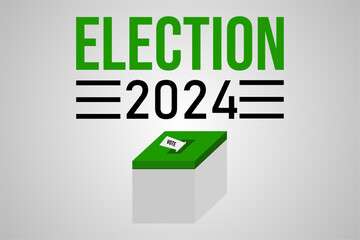Pakistan’s Electoral Crossroads: A Pivotal Juncture for Democracy
The impending general elections on February 8, 2024, mark a significant turning point in Pakistan’s democratic journey. As the nation anticipates this critical electoral event, it is essential to delve into the intricacies of the electoral process and the surrounding controversies that demand our careful attention. The hopes of the people hinge on a transparent and resolute electoral exercise that can shape the country’s future, ushering in a new era of political stability and democratic legitimacy.
The Announced Date for Pakistan’s 2024 General Elections
In a highly anticipated development, the Election Commission of Pakistan (ECP) has officially declared February 8, 2024, as the date for the upcoming general elections. The decision emerged following a pivotal court hearing that addressed petitions seeking the expeditious commencement of the electoral process. The Supreme Court Bar Association, the Pakistan Tehreek-e-Insaf (PTI), and various other concerned parties had urged the apex court to accelerate the electoral proceedings.
A panel of esteemed judges, including Chief Justice Qazi Faez Isa, Justice Athar Minallah, and Justice Amin-Ud-Din Khan, played a pivotal role in directing the ECP to engage in deliberations with President Dr. Arif Alvi. This crucial step set the stage for the announcement of the election date.https://thebalochistanupdates.com/shifting-sands-with-unending-political-saga-in-balochistan/
Consensus on the Electoral Crossroads Date
Subsequently, an ECP delegation, led by Chief Election Commissioner Sikander Sultan Raja, engaged in discussions with the president, further substantiated by a written communique advocating for February 11, 2024, as the ultimate election date. After due consensus, February 8, 2024, emerged as the unanimous choice for the electoral showdown, a decision that will be formally presented to the Supreme Court.
This consensus among political stakeholders was particularly significant, considering the escalating political tensions within the nation. The dissolution of the provincial assemblies of Punjab and Khyber Pakhtunkhwa by the PTI government earlier this year had set a constitutional deadline of 90 days for conducting elections. However, this deadline was breached, raising constitutional concerns.
As a result, these two provinces have been under caretaker administrations for a year, posing challenges to the democratic foundations of the system. A similar situation prevails in the central government, Sindh, and Balochistan, with caretaker administrations in place for approximately six months before the elections.
The Ongoing Constitutional Impasse
Pakistan has grappled with a series of crises, including a constitutional impasse triggered by the reinterpretation of Article 63A by the Bandial-led Supreme Court, which led to political ambiguity in the Punjab Assembly. This uncertainty has persisted, prompting fervent appeals for the ECP to establish an election date over the past few months.
Questions have also arisen regarding President Alvi’s role in announcing an election date, despite constitutional scholars asserting that it is his constitutional obligation, regardless of the ECP’s stance. The lingering uncertainty is set to be resolved as a consensus date is formally submitted to the Supreme Court.
Navigating Political Fervor and Electoral Legitimacy
The nation is bracing for heightened political activity as all political parties transition into election mode. PML-N’s leader, Nawaz Sharif, is poised to commence his campaign soon, and political fervor is set to intensify in the lead-up to the elections.
However, this surge in political activity invites scrutiny of the legitimacy of the next government, especially amid speculations surrounding the PTI’s electoral prospects. The lessons from 2018 serve as a poignant reminder, highlighting the nation’s urgent need for an authentically elected government with an unequivocal mandate from the populace.
As Pakistan stands at this electoral crossroads, the hopes and expectations of the people are firmly anchored in a democratic process that not only respects constitutional deadlines but also reflects the will of the nation. The journey ahead is marked by challenges, but it is through such challenges that nations reaffirm their commitment to democracy and emerge stronger and more resilient.https://thebalochistanupdates.com/balochistans-political-flux/


